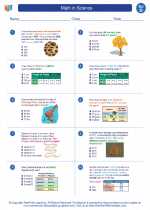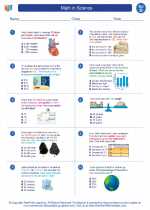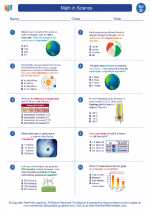Marine Ecosystems
The marine ecosystem refers to the diverse communities of plants, animals, and microorganisms that exist in the ocean. This ecosystem is characterized by its vastness and complexity, and it plays a crucial role in regulating the Earth's climate, providing food and resources, and supporting a wide variety of life forms.
Physical Characteristics of the Marine Environment
- Temperature: The temperature of ocean water varies depending on the location and depth. It can range from below freezing in polar regions to over 30°C (86°F) in tropical waters.
- Salinity: The saltiness of seawater, or salinity, also varies, but it generally falls within the range of 3.3–3.7%.
- Pressure: As you go deeper into the ocean, the pressure increases due to the weight of the water above.
- Light: Light penetration decreases with depth, affecting the availability of sunlight for photosynthesis.
- Substrate: The ocean floor can be composed of different materials such as sand, mud, rocks, and coral reefs.
Biological Diversity in Marine Ecosystems
The marine ecosystem is home to a wide array of organisms, from microscopic phytoplankton to massive whales. Some key organisms found in marine ecosystems include:
- Phytoplankton: These are microscopic marine plants that form the base of the marine food web through photosynthesis.
- Zooplankton: These are tiny animals that feed on phytoplankton and serve as a vital food source for many marine organisms.
- Fish and Marine Mammals: The oceans are home to a vast diversity of fish species, as well as marine mammals such as dolphins, whales, and seals.
- Coral Reefs: These diverse ecosystems are built by colonies of tiny animals called coral polyps and support a rich variety of marine life.
- Seabirds: Many species of birds rely on the ocean for food and habitat, including albatrosses, penguins, and pelicans.
Threats and Conservation
Marine ecosystems face a range of threats, including overfishing, pollution, habitat destruction, and climate change. Conservation efforts are crucial to protect and preserve these vital ecosystems. Some key conservation strategies include establishing marine protected areas, sustainable fishing practices, reducing plastic pollution, and addressing climate change impacts on ocean ecosystems.
Study Guide
As you study the marine ecosystem, consider the following questions:
- What are the physical characteristics of the marine environment, and how do they affect marine life?
- Describe the importance of phytoplankton and zooplankton in the marine food web.
- Explain the role of coral reefs in supporting marine biodiversity.
- What are the major threats to marine ecosystems, and what can be done to address them?
- Research a specific marine conservation project or initiative and present your findings to the class.
By exploring these questions and topics, you'll develop a deeper understanding of the complexity and importance of marine ecosystems.
.◂Science Worksheets and Study Guides Fourth Grade. Math in Science

 Worksheet/Answer key
Worksheet/Answer key
 Worksheet/Answer key
Worksheet/Answer key
 Worksheet/Answer key
Worksheet/Answer key
